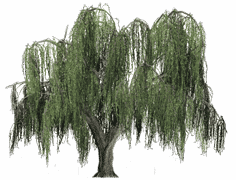The Angola Horror, John D. Rockefeller and What It Means For Your Story
Growing up in the small town of Angola, New York (population of 2,127), I had never heard about “The Angola Horror,” considered to be one of the worst railroad accidents in19th-century America.
No plaques or other memorials honoring the dead were placed at the wreck which occurred just outside the village over 150 years ago. To the best of my recollection, there was never any mention of it at our school. In fact, I would only learn about my town’s famous disaster after the book, “The Angola Horror” by Charity Vogel was published in 2007. Perhaps this was to distance the small town and lakeside get-a-way from the carnage and characterization by a Buffalo newspaper at the time which stated: “The name Angola is, and will forever be, associated with the most fearful railway slaughter on record.”
Ten years ago a historic marker was finally placed near the accident site.
An account on History.net states that on December 17, 1867 just after 3 o’clock in the afternoon, while crossing over a high bridge, the Buffalo-bound express jumped the tracks and tumbled 30 feet into a gorge below. The last two cars burst into flames. Fifty people died and at least 100 more were badly burned or injured.
The event was said to have “changed the world” – tragically of course for the victims and their families. But there was a silver lining to the wretched catastrophe as it also led to increased railroad safety standards.
One of the most remarkable twists of fate associated with the tragedy was tied to American oil industry magnate John D. Rockefeller. As he left his home in Cleveland for the Buffalo bound train, he planned to catch a connection to New York City. Rockefeller pulled into Cleveland’s Union Station just a few minutes too late; his bags made the train but he didn’t, and it saved his life. As a latecomer to the Cleveland station, he would have been seated in the end car where the inferno occurred.
This story got me to thinking about the determining forces which shape our lives: i.e, events that happen outside of our control as well as the paths we consciously decide to take. While most of us haven’t had an experience like Rockefeller’s – most would agree to having been tossed to and fro by the winds of fate. Ultimately, our lives are the result of both fate and the sum total of our thoughts and decisions – both large and small.
In Rockefeller’s case, instead of suffering “survivor’s guilt,” the incident was further affirmation for him that he had a destiny to fulfill. His reaction? “I do regard the thing as the Providence of God.” After the tragedy, he went on to form Standard Oil, and gave billions away to philanthropic causes.
One of the known benefits of life review is that it helps us make sense, or put in perspective all that has happened in our lives (“The Handbook of Structured Life Review,” Barbara Haight). In essence, we are “connecting the dots” of our life’s road map. Someone once said, telling our story allows the teller to “set the record straight.” In truth, while proven therapeutic for the teller, it can also help families better understand each other, which can strengthen relationships.
What decision have you made that ultimately changed your life? Was it a school you decided to attend (or not attend), the choice of your mate, or a career path?
